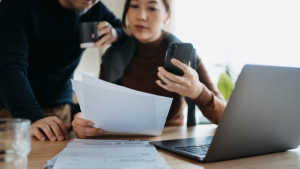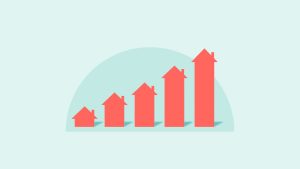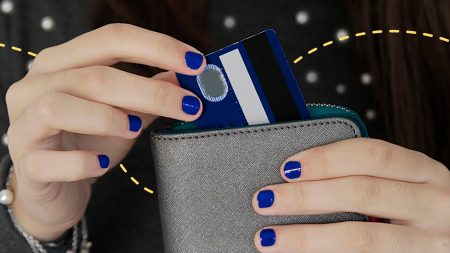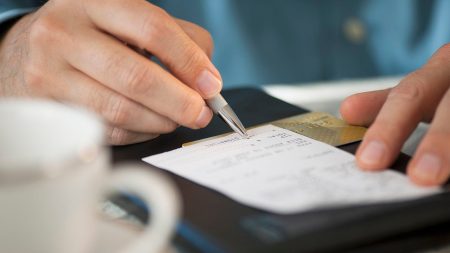Key takeaways
- Using a personal loan to pay off credit card debt can save money on interest and simplify monthly payments.
- Personal loans are still a form of debt, and it’s important not to rack up more credit card debt while paying off your personal loan.
- Alternatives such as balance transfer credit cards, negotiating lower interest rates or seeking credit counseling may also be effective for managing credit card debt.
If you have credit card debt, you know how frustrating it can be to try to balance multiple credit card payments every month. Will you be able to make more than the minimum payment on each card? If so, how much more? Should you focus on paying off the card with the highest balance or the card with the highest interest rate?
Taking out a personal loan for credit card debt can help you solve many of these problems. You can use your personal loan to pay off your credit card debt in full. Since personal loans typically have lower interest rates than credit cards, you might even save money in interest charges over time.
That said, paying off credit card debt with a personal loan has its pros and cons. Let’s take a look at the advantages and disadvantages and explore a few options that might help you pay off your credit card debt without taking out a personal loan.
Reasons to use a personal loan for credit card debt
Using a personal loan for credit card debt is a form of debt consolidation, and there are a lot of advantages to consolidating your debt into a single monthly payment. Here are three of the biggest reasons to use a personal loan to pay off your credit card debt.
Pay off credit card debt in full
If you have high credit card balances, a personal loan can help you pay off your credit card debt in full. This action will not only give you the peace of mind that comes with being out of credit card debt, it might also increase your credit score.
Keep in mind that using a personal loan to pay off your credit card debt isn’t the same thing as becoming debt-free. After you pay off your credit cards, you’ll still need to pay off your personal loan. However, paying off your high credit card balances and saying goodbye to the high interest charges that accompany them can be a huge financial relief.
Lower interest rate
The average credit card interest rate is currently about 20.76 percent APR, but the average personal loan rate is between 10.73 percent and 15.50 percent APR for those with good to excellent credit. It is also important to note that many credit cards charge considerably higher interest rates than the average.
While your actual interest rate will depend on your credit score, the amount of money you plan to borrow and the terms of your loan, there’s a good possibility that a personal loan will have a lower APR than your credit cards, plus most personal loans have fixed rates. So using a personal loan to pay off your credit card debt can often help you save a lot of money in interest charges.
Single monthly payment
Balancing multiple credit card payments every month can be difficult. Personal loans let you consolidate your debt into a single monthly payment. This process can make it easier to plan ahead and set aside money for your monthly loan payment, which can also help you pay off your personal loan more quickly.
Remember, the more money you put toward your loan payments every month, the more money you’ll save over time in interest charges.
Potential drawbacks of paying credit cards with a personal loan
While there are many benefits to using a personal loan for credit card debt, there are also a few drawbacks — including the possibility of ending up in credit card debt again. Here are four of the biggest drawbacks of paying credit cards with a personal loan.
Personal loans are still debt
While personal loans can help you pay off your credit card debt in full, it’s important to remember that a personal loan is just another type of debt. Once your credit cards are paid off, you won’t be debt-free — you’ll still need to pay off your personal loan, and you’ll need to make your monthly loan payments without getting into new credit card debt in the process.
Difficult to avoid using credit cards
If you are in the habit of using your credit cards to cover expenses that you can’t pay off in full every month, it might be difficult to learn how to spend within your means. When you use a personal loan to pay off credit card debt, it’s important to avoid racking up new credit card balances as you pay off your personal loan. Otherwise, you could end up worse off than you started.
If you can handle making small purchases on your credit cards and paying them off in full every month, you might be able to continue using your credit cards after you’ve paid them off with your personal loan. If not, it might be a good idea to avoid using your credit cards altogether. Once your personal loan is paid off, you can start using credit cards again — but only for purchases you can pay off in full at the end of each billing cycle.
Low interest rates not guaranteed
We’ve talked a lot about how personal loans tend to offer lower interest rates than credit cards, but this may not be the case for everyone. If you have a rough credit history and you happen to have bad credit, you might not qualify for a personal loan. And if you do manage to get approved for a personal loan with bad credit, you may be hit with a higher interest rate than you’d like.
Personal loan fees
Some personal loans charge an origination fee to open the loan. Keep this in mind as you are browsing your options, and make sure you are aware of any other fees that may come with a personal loan before committing.
How to pay credit card debt with a personal loan
If you want to use a personal loan for credit card debt, here are the steps you need to take:
- Apply for a personal loan: Compare personal loan services, look into eligibility requirements and apply for the loan that seems like the best option for someone with your debt and credit score.
- Use the loan money to pay off your credit card debt: In many cases, the loan servicer will deposit the money from your personal loan directly into your checking account. Use that money to pay off your credit card debt — don’t use it for anything else. If you misuse your personal loan funds, you’ll have both your credit card debt and the personal loan to pay off.
- Pay off your personal loan as quickly as possible: Once your credit card debt is paid off in full, focus on paying off your personal loan as quickly as possible. Make sure your loan doesn’t penalize you for early repayment, and put as much extra money toward your loan every month as you can afford.
- Avoid using your credit cards as you pay off your personal loan: Don’t let yourself get back into credit card debt as you pay off your personal loan. Avoid using your credit cards and only make purchases that you know you can pay off in full every month.
- Start using your credit cards for purchases you can afford: There’s no reason to give up using credit cards forever — there are so many benefits to using credit, including the ability to earn rewards on your purchases. That said, try to use your credit cards only for purchases you can afford. Credit card debt is expensive, time-consuming and much more trouble than it’s worth. That’s why many people use personal loans to pay off their credit card debt and give themselves a fresh start.
Alternatives to manage credit card debt
Don’t want to use a personal loan to pay off your credit card debt? Here are some alternative options you can use to help you pay off your credit card debt for good.
Apply for a balance transfer credit card
A balance transfer credit card can help you consolidate your credit card balances onto a single card, which often makes it easier to pay off your credit card debt. Many of the best balance transfer credit cards give you between 12 and 21 months of 0 percent intro APR to help you pay down your balances while avoiding interest charges.
Negotiate a lower interest rate
If you think lowering your credit card interest rates would give you the edge you need to pay off your credit card debt quickly, try contacting your lenders and asking for a rate reduction. Keep in mind that cardholders in good standing will be more likely to receive a lower interest rate than cardholders who have a history of missing or late payments.
Ask about hardship programs
Credit card issuers have hardship programs designed to help people who find themselves unemployed or experiencing another kind of unexpected financial strain. Many of these programs include credit card forbearance, in which card issuers waive payments (and, occasionally, interest) for a set period of time. If you are in the middle of a financial crisis, calling your credit card issuer and asking about hardship programs can help you avoid getting into unmanageable credit card debt.
Look into credit counseling
A reputable credit counseling service can help you manage your credit card debt and suggest options that might help you pay down your debt more quickly. Whether you’re hoping to create a budget or compare debt consolidation options, a credit counseling service can provide the guidance you need.
Sign up with a debt settlement service
If you don’t think you’ll ever be able to pay off your credit card debt in full, a debt settlement service can help you negotiate a settlement with your credit card company. Debt settlement companies often come with hefty fees, and settling your debt instead of paying it off in full could damage your credit score. However, debt settlement is one way of dealing with the kind of credit card debt that you can no longer manage on your own — so add it to your list of options.
The bottom line
Taking out a personal loan for credit card debt can help you pay off your credit card debt in full and get control of your finances. However, a personal loan isn’t the only option for people who want to pay off their credit card debt. A balance transfer credit card, for example, is another good way of consolidating your credit card balances into a single monthly payment.
Before you take out a loan, consider all your options. Make sure the personal loan you are considering offers lower interest rates than your credit cards, and have a plan to pay off your personal loan without going into new credit card debt. That’s the best way to use a personal loan to pay off outstanding credit card balances.
Read the full article here









